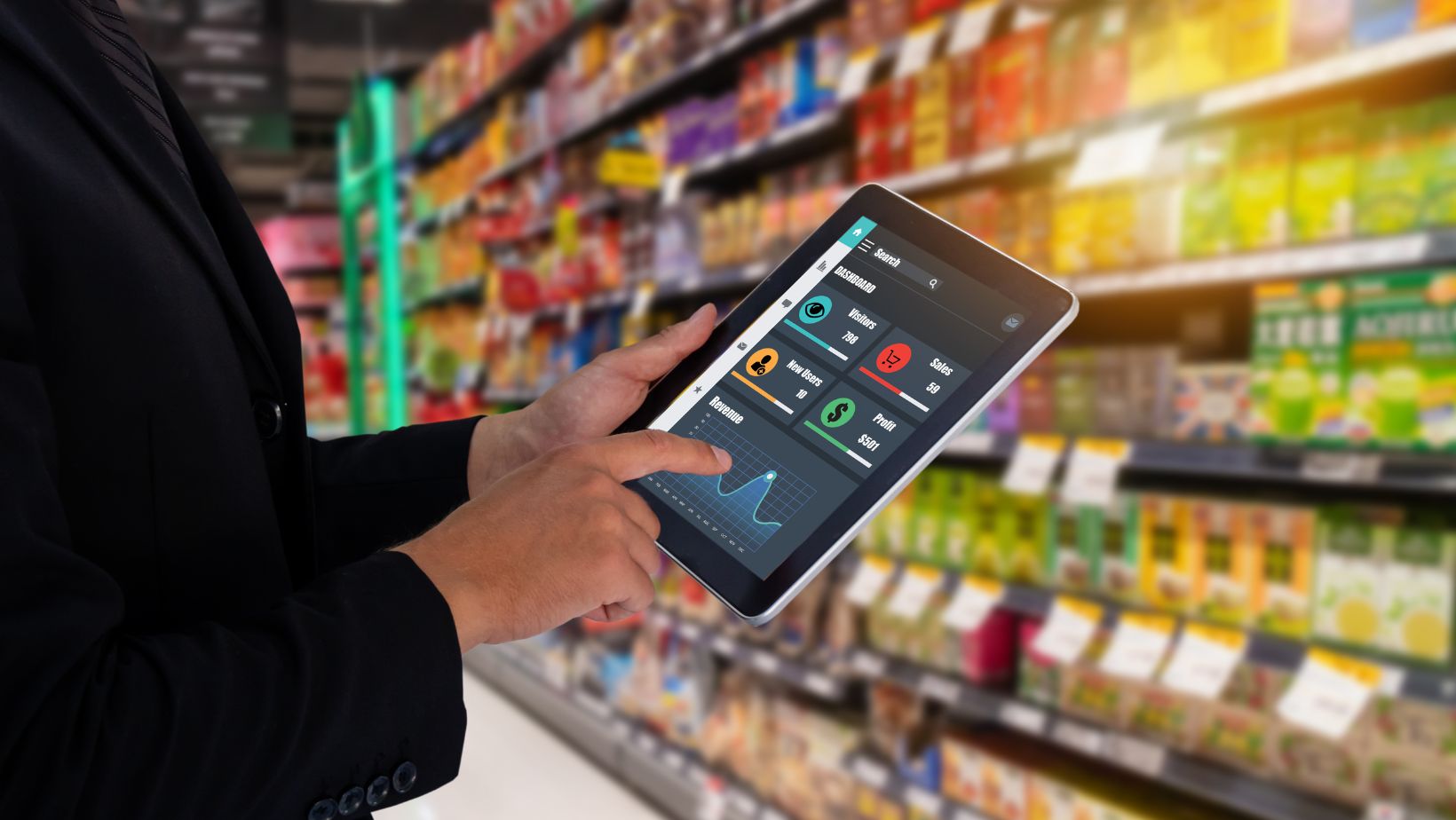
In the ever-evolving landscape of retail, technology continues to push the boundaries of what’s possible, transforming how retailers operate and how consumers shop. From AI-driven personalization to seamless omnichannel experiences, the latest trends in retail technology are not just shaping the present—they’re molding the future of the industry. As businesses strive to meet changing consumer demands and stay ahead of the competition, staying updated with these trends isn’t just advisable; it’s essential.
Retail Technology Trends
Enhanced E-Commerce Platforms
 In the digital age, enhanced e-commerce platforms are critical for retailers looking to adapt and thrive. These platforms integrate advanced technologies such as AI and machine learning to offer personalized shopping experiences. For instance, AI algorithms analyze customer data to provide tailored product recommendations and promotions, directly impacting sales growth. Retailers also benefit from streamlined inventory management systems that predict product demand patterns, ensuring optimal stock levels at all times. Furthermore, these platforms facilitate seamless integration with other digital services, including social media, enabling a unified approach to online retailing.
In the digital age, enhanced e-commerce platforms are critical for retailers looking to adapt and thrive. These platforms integrate advanced technologies such as AI and machine learning to offer personalized shopping experiences. For instance, AI algorithms analyze customer data to provide tailored product recommendations and promotions, directly impacting sales growth. Retailers also benefit from streamlined inventory management systems that predict product demand patterns, ensuring optimal stock levels at all times. Furthermore, these platforms facilitate seamless integration with other digital services, including social media, enabling a unified approach to online retailing.
Growth of Contactless Payments
The adoption of contactless payments has surged, driven by consumer demand for speed and convenience, coupled with heightened awareness of hygiene post-pandemic. Retail technology trends indicate a significant shift towards mobile payments and digital wallets. Retailers incorporating contactless payment systems, such as NFC technology, not only enhance the customer experience by reducing transaction times but also increase operational efficiencies. Moreover, the integration of contactless payment methods with loyalty programs and targeted offers encourages repeat business, thereby boosting customer retention rates. By deploying these technologies, retailers ensure a safer and more convenient shopping environment for all customers.
Impact of Artificial Intelligence on Retail
Personalization Engines
 Retailers use AI-driven personalization engines to enhance the shopping experience, tailoring product recommendations and promotions to individual consumer preferences. By analyzing data from various customer interactions—such as past purchases, browsing history, and search patterns—these engines can predict what products a shopper might be interested in. For example, if a customer frequently buys organic skincare products, the personalization engine might suggest similar items during their next visit. This capability not only increases customer satisfaction but also boosts sales by making shopping more relevant and engaging.
Retailers use AI-driven personalization engines to enhance the shopping experience, tailoring product recommendations and promotions to individual consumer preferences. By analyzing data from various customer interactions—such as past purchases, browsing history, and search patterns—these engines can predict what products a shopper might be interested in. For example, if a customer frequently buys organic skincare products, the personalization engine might suggest similar items during their next visit. This capability not only increases customer satisfaction but also boosts sales by making shopping more relevant and engaging.
Inventory and Supply Chain Management
Artificial intelligence significantly improves inventory and supply chain management in retail. AI systems analyze vast amounts of data to forecast demand, optimize stock levels, and identify potential supply chain disruptions before they cause problems. By predicting trends and seasonal shifts accurately, retailers can manage inventory more effectively, reducing both overstock and stockouts. For instance, an AI system might alert a retailer to increase the stock of umbrellas and raincoats based on weather forecasting algorithms predicting an extended rainy season. This kind of proactive management not only saves costs but also ensures customers find what they need, enhancing overall satisfaction and loyalty. Moreover, AI-driven logistics solutions streamline operations, from warehouse automation to route optimization for deliveries, further increasing efficiency and reducing operational costs.
The Rise of Omnichannel Retailing
 Retail technology trends are rapidly evolving, and the adoption of omnichannel strategies highlights the shift toward a more integrated shopping experience. Omnichannel retailing merges online and offline environments, enabling a seamless consumer journey across various platforms. Consumers enjoy shopping through multiple channels, such as websites, mobile apps, and physical stores, which provide consistent service and product availability.
Retail technology trends are rapidly evolving, and the adoption of omnichannel strategies highlights the shift toward a more integrated shopping experience. Omnichannel retailing merges online and offline environments, enabling a seamless consumer journey across various platforms. Consumers enjoy shopping through multiple channels, such as websites, mobile apps, and physical stores, which provide consistent service and product availability.
Retailers benefit from an integrated approach, as it not only increases consumer engagement through enhanced convenience but also gathers valuable data across touchpoints. This holistic view of consumer behavior aids retailers in optimizing their inventory, customizing marketing efforts, and ultimately increasing sales. As technology advances, retailers must invest in robust omnichannel solutions to meet consumer expectations and maintain competitive advantage.
Sustainable Technology in Retail
As retailers navigate the complex landscape of modern commerce, the integration of technology proves crucial. Embracing AI for personalization and inventory management enhances the shopping experience and operational efficiencies. Meanwhile, the shift towards omnichannel retailing is pivotal. It not only streamlines the consumer journey but also leverages data to refine strategies and boost profitability. Retailers must continue to adapt and innovate ensuring they not only meet but exceed consumer expectations in this dynamic market.


